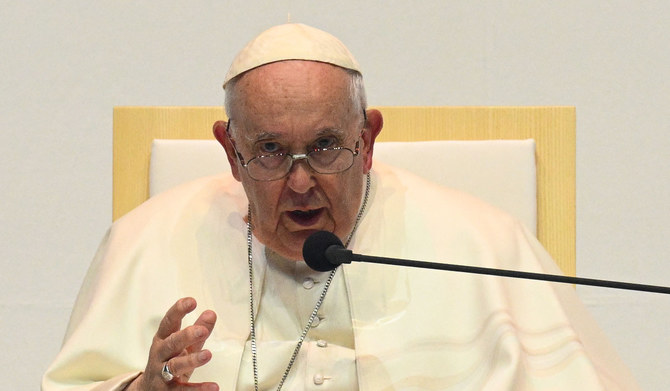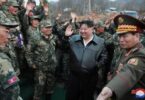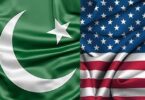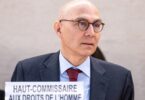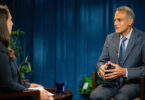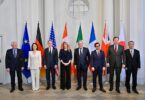BUDAPEST (Reuters): Pope Francis on Saturday met Ukrainians who fled the war on Hungary’s eastern border, telling the refugees that a different future is possible.
Francis met with about 600 refugees, poor and homeless people in a visit to St. Elizabeth’s church in Budapest on the second day of his visit, which began on Friday when he pointedly warned of the dangers of rising nationalism in Europe.
Pope Francis thanked Hungarians for welcoming Ukrainian refugees and urged them to help anyone in need, as he begged for a culture of charity.
Francis was serenaded by a singing band of Hungarian Roma wearing flower-patterned clothing and seemed to enjoy the music as they hovered around him as he sat in his wheelchair.
But what Francis heard earlier was much more sober.
Oleg Yakovlev told of he and his wife Lyudmila and their five children had to leave Dnipro a year ago after Russian bombings.
“We were welcomed here and we have found a new home (but) many have suffered and suffer still because of the war,” Yakovlev told the pope.
Sitting in the first row of the church with his family, the youngest of the Yakovlev children, a boy of about four, was amused by the attention he was getting, making faces at reporters as his father spoke of missiles, crumbled buildings and a 1,500 km trip to safety.
Since Feb. 24, 2022, millions of refugees have fled through Central Europe, including Hungary, and moved to other countries. About 35,000 have applied for temporary protection status in Hungary.
Francis said expressing compassion for those suffering from poverty and tragedy is an integral part of being a Christian, even if those in need are non-believers.
“Even amid pain and suffering, once we have received the balm of love, we find the courage needed to keep moving forward: We find the strength to believe that all is not lost, and that a different future is possible,” he said.
Later the pontiff met with Metropolitan (bishop) Hilarion, representative of the Russian Orthodox Church in Budapest.
Hilarion was effectively ousted from the number two post at the ROC headquarters in Moscow last year, a decision seen as indicating discord at the top of the Russian Patriarchate over the war.
The Russian Orthodox Church is by far the biggest of the churches in the Eastern Orthodox communion, which split with Western Christianity in the Great Schism of 1054.
The Russian invasion of Ukraine divided world Orthodoxy and strained relations between the Vatican and the ROC.
ROC Patriarch, Kirill, is a close ally of Russian President Vladimir Putin. Kirill fully backs the war as a bulwark against a West he describes as decadent.
The EU tried to put Kirill on its sanctions list last year but member states failed to find unanimity on the issue as Hungary opposed his inclusion.
Relations between the Vatican and the ROC have been frosty since Francis said last year that Kirill should not be “Putin’s altar boy.”

